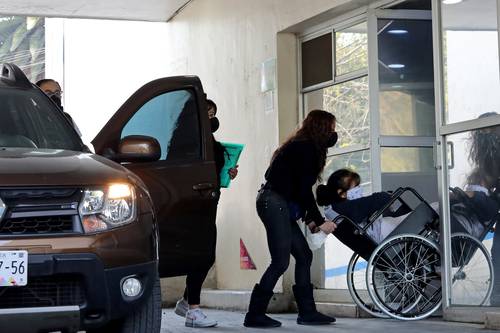▲ Many lost their jobs or were sent to rest during the height of the contagion.Photo Roberto Garcia Ortiz
Carolina Gomez, Jessica Xantomila and Laura Poy
Newspaper La Jornada
Thursday, March 3, 2022, p. fifteen
The Covid 19 pandemic increased workloads for women up to three times, which caused their physical, psychological and emotional exhaustion, according to the United Nations Development Program (UNDP).
Studies by international organizations show that in two years women have suffered a decade-long setback in the exercise of their rights due to job loss, a decrease in their income and a disproportionate increase in unpaid activities.
Compared to men, they had an unequal distribution of responsibilities, which compromised their ability to access and keep jobs, according to the World Bank.
One of the most affected groups, in addition to an increase in gender-based violence due to confinement, was that of domestic workers, who represent 2.4 million jobs in Mexico.
Many of them lost their jobs or were sent to rest during the most intense weeks of contagion without pay, which worsened their already precarious economic situation. The Minimum Wage Commission determined that for this year, the minimum income for domestic workers in the northern zone is 260.34 pesos per day and 187.92 pesos for the rest of the country.
The International Labor Organization indicates that 54 million workers have lost their jobs so far during the pandemic. In one year, between 2019 and 2020, women suffered the greatest drop in this category, 9.4 percent, which represents almost three percentage points more than men.
Given these figures and the setback that occurred in the labor participation of women, the Economic Commission for Latin America and the Caribbean (ECLAC) is betting on a recovery with a feminist vision. In this framework, the UN also recalls that almost 60 percent of women work in the informal economy, which is why they earn and save less.
Regarding the increase in the rates of gender violence that occurred during the confinement, the aggressions were experienced mainly at home.
In the report Violence against Women during covid-19 (November 2021), UN Women warns that seven out of 10 think that domestic violence was accentuated in the pandemic; three out of five, that there was an increase in cases of sexual harassment in public places
and that the growing demand for accommodation in shelters was not met. Nadine Gasman, president of the National Institute for Women (InMujeres), told La Jornada that to the extent that the opening of schools is reactivated and there are fewer restrictions on mobility, the jobs lost for the female sector will be recovered. Women are looking for work again, but the recovery has been slower than that of men
he admits.
It details that in Mexico, the economic participation of women went from 45 percent between January and March 2020, to 35 percent between April and May of that year, which was the stage of greatest confinement
.
In other words, the levels of the 1990s were reached. By the end of 2021, the recovery was close to 44 percent.
Coupled with the loss of employment, the burden of unpaid care for this sector increased. The study Working mothers and covid-19, from the UNDP, reports that in Mexico, women spent on average, before the pandemic, 30.8 hours of domestic work, compared to 11.6 for men.
Due to the health emergency, 56 percent of women felt more tired, as the time they spent on housework increased. This was reported by 80.5 percent of mothers with children under 18 years of age and 76.8 percent of those without children.
















